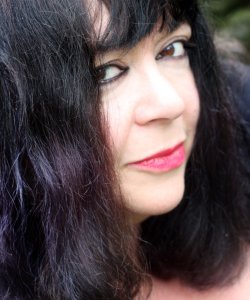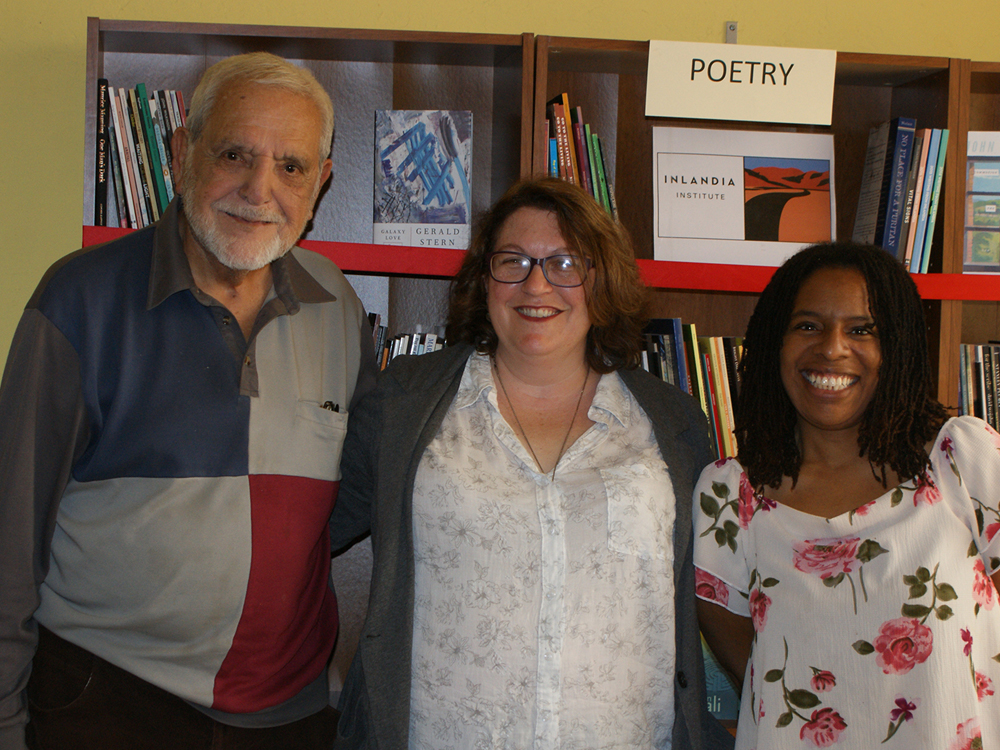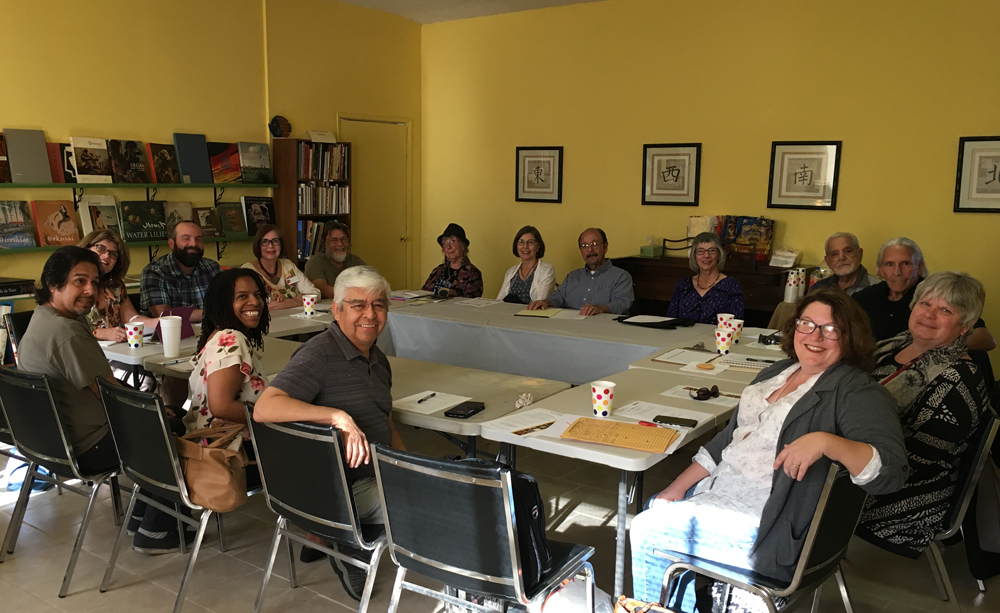Junot Díaz Responds to Abuse Allegations, Barnes and Noble in Trouble, and More
Writers on bookstores worth traveling for; National Book Awards moves to include noncitizens; poet Carl Phillips on revision; and other news.
Jump to navigation Skip to content
Writers on bookstores worth traveling for; National Book Awards moves to include noncitizens; poet Carl Phillips on revision; and other news.
Jane Chu, chair of the National Endowment for the Arts, will step down in June; tomorrow is Free Comic Book Day; tips on applying for grants; and other news.
April showers bring May poetry contests! If you have a single poem or full-length collection ready to submit, check out the following contests with May 15 deadlines, each of which offers a prize of at least $1,000 and publication.
American Poetry Review Stanley Kunitz Memorial Prize: A prize of $1,000 and publication in American Poetry Review is given annually for a poem by a poet under the age of 40. The editors will judge. Entry fee: $15
Breakwater Review Perseroff Prize: A prize of $1,000 and publication in Breakwater Review is given annually for a single poem. Jill McDonough will judge. Entry fee: $10
Georgia Review Loraine Williams Poetry Prize: A prize of $1,000 and publication in Georgia Review is given annually for a poem. Entry fee: $15
Lynx House Press Blue Lynx Prize for Poetry: A prize of $2,000 and publication by Lynx House Press is given annually for a poetry collection. Entry fee: $28
Ruminate Magazine Janet B. McCabe Poetry Prize: A prize of $1,500 and publication in Ruminate Magazine is given annually for a poem. Ilya Kaminsky will judge. Entry fee: $20
Lost Horse Press Idaho Prize for Poetry: A prize of $1,000, publication by Lost Horse Press, and 20 author copies is given annually for a poetry collection by a U.S. poet. Piotr Florczyk will judge. Entry fee: $28
Visit the contest websites for complete guidelines, and check out the Grants & Awards database and Submission Calendar for more contests in poetry, fiction, and creative nonfiction.
“It’s what poetry can do—it can take us to other places, in a moment.” Cynthia Nixon and other cultural figures including Yo-Yo Ma, Joe Biden, Sonia Sanchez, Shaquille O’Neal, Edward Hirsch, and Bono are featured in this trailer for the public television series Poetry in America. Hosted by Harvard professor Elisa New, each episode explores and interprets a single American poem.
Jason Reynolds speaks about his new books, Sunny and For Every One, both published last month by Atheneum/Caitlyn Dlouhy Books, reading for the dedication of the Martin Luther King, Jr. Memorial, and the importance of daring to dream on Late Night With Seth Meyers.
In “The Love of Labor, the Labor of Love,” Rigoberto González’s interview with Carmen Giménez Smith in the May/June issue of Poets & Writers Magazine, she talks about the experimentation in her new book, Cruel Futures (City Lights Books, 2018). Smith discusses releasing her writing from her usual “taut lyric voice” and allowing herself to “fly without punctuation...employing more cloudiness, maybe more impressionism.” This week, make an effort to let go of your own poetic safety blanket, and do away with the most clearly defined aspects of your lyric voice. Dispel with punctuation, wreak havoc with line breaks and syntax, and write a hazy series of impressionistic, cloudy poems.

The author of Still Life With Two Dead Peacocks and a Girl talks about her formative time at Hedgebrook, the relationship between poetry and the Internet, and more.
Submissions are currently open for BOMB Magazine’s 2018 Poetry Contest. A prize of $1,000 and publication in BOMB’s literary supplement, First Proof, is given biennially for a group of poems by an emerging writer. Dawn Lundy Martin will judge.
Using the online submission system, submit up to five poems totaling no more than ten pages with a $20 entry fee, which includes a one-year subscription to BOMB for U.S. entrants, by May 6. The winner will be announced on July 31.
Previous winners of the contest include Marwa Helal, Daniel Poppick, and Steve Dickison. BOMB’s literary prize is given in alternating years for fiction and poetry; the 2019 award will be given in fiction. Visit the website for more information.
(Photo: Dawn Lundy Martin)
“Sit down, world / and relax / so you don’t have tornadoes.” Preschool Poets, an animated series codirected by Nancy Kangas and Josh Kun, collects poems written by preschool students in Columbus, Ohio, and matches them up with renowned animators. Animated by Stas Santimov, “Bullets” was written by Brayden and read by his classmate Miracle.
For years, Poets & Writers’ Readings & Workshops program has been conducting Literary Roundtable Meetings in California and New York State. The meetings bring together people from all areas of the literary community to share ideas, news, and resources. In California, eight community meetings are held a year. This spring, a meeting was held in California’s Inland Empire region, an area centered around the cities of Riverside and San Bernardino. The guest speaker was Dr. Ernie Garcia of the Garcia Center for the Arts, where the meeting was held, and the cohost was Cati Porter, director of the Inlandia Institute. Porter is a poet, editor, essayist, and arts administrator, and her third poetry collection, The Body at a Loss, is forthcoming next year from CavanKerry Press. She writes about the value of the annual Literary Roundtable Meetings and the recent gathering in San Bernardino, California.
 For the past decade, Inlandia Institute has been the Inland Empire regional partner for Poets & Writers’ annual Inland Empire Literary Roundtable Meeting. We have always held the meeting at a local library, but this year thought it would be fun to mix it up and meet at the Garcia Center for the Arts in San Bernardino.
For the past decade, Inlandia Institute has been the Inland Empire regional partner for Poets & Writers’ annual Inland Empire Literary Roundtable Meeting. We have always held the meeting at a local library, but this year thought it would be fun to mix it up and meet at the Garcia Center for the Arts in San Bernardino.
Situated in an urban center, the Garcia Center is an oasis. Opening the front gate is like stepping through a portal: The courtyard is filled with desert-loving flora. Banana trees, heavy with fruit, bend over the walkways. A fountain purrs. The building is a Spanish adobe, once abandoned and now rehabilitated, and home to artist studios and arts organizations, including a second office for Inlandia.
The Garcia Center is named after and run by Dr. Ernie Garcia, our guest speaker for the roundtable that day. I arrive early and can already hear voices as I make my way toward the community library for the meeting. That’s when I find Ernie sitting on a bench in the courtyard with another early arrival. The three of us head into the “library,” a large room stocked, thanks to generous community donations, with books and comfy chairs.
An island of tables has already been set up for our meeting. Soon Jamie Asaye FitzGerald, director of Poets & Writers’ Readings & Workshops (West), arrives—and then about a dozen others. Just inside the door is an upright piano, another donation, and Jamie sits and plays for us as we settle in. The table fills up quickly.
We have just begun going around the room introducing ourselves when two more people walk in, then one more, then a couple more again, until nearly every seat is filled including the wing chairs and sofa. Among those present are Timothy Green of Rattle literary magazine, Richard Soos of Cholla Needles Press, Jennifer Kane of Arts Connection, Juan Delgado of California State University in San Bernardino, Cindy Rinne of the San Bernardino Valley Concert Association, Edward Ferrari of PoetrIE, and Nikia Chaney, the Inlandia Literary Laureate.
In all, twenty-five people coming from as far and wide as Sun City, Rancho Cucamonga, Barstow, Ontario, Wrightwood, Forest Falls, Joshua Tree, Yucaipa, Moreno Valley, Redlands, and Riverside. There is such thirst for this kind of support for artists and writers in Inlandia that folks were willing to drive great distances just to connect.
Dr. Garcia—aka Ernie, aka Neto Esquelito—gives us an oral history of the Garcia Center, and then reads from his book, Growing Up Aleluya, about religious intolerance in the barrio of South Colton, California.
When Ernie finishes, I pull out a pair of scissors.
Ernie, Nikia, and I push back our chairs and walk to a trio of bookshelves behind me, a red ribbon draped across. Ernie cuts the ribbon. The sign beneath reads: Inlandia Poetry Library Donated By Inlandia Literary Laureate Nikia Chaney.
Nikia found herself with more books than bookshelves after serving as a judge for this year’s Kate and Kingsley Tufts Poetry Prize, so she decided to donate them as part of her laureateship to form the Inlandia Poetry Library at the Garcia Center. More than four hundred poetry books are now free to the public to check out, on the honor system, when the center is open.
Writing is about connecting. It’s not, as they say, always a solitary act. Community is the well we drink from after the long journey inward. What Poets & Writers does is create someplace for us to come back to—for exchange of ideas and connection with other writers—something that, in the Inlandia region, is hard to come by.

Support for this event and Readings & Workshops in California is provided by the California Arts Council, a state agency, and the National Endowment for the Arts, a federal agency. Additional support comes from the Friends of Poets & Writers.
Photos: (top) Dr. Ernie Garcia, Cati Porter, and Nikia Chaney (Credit: Cindy Rinne). (bottom) Inland Empire group (Credit: Jamie FitzGerald).